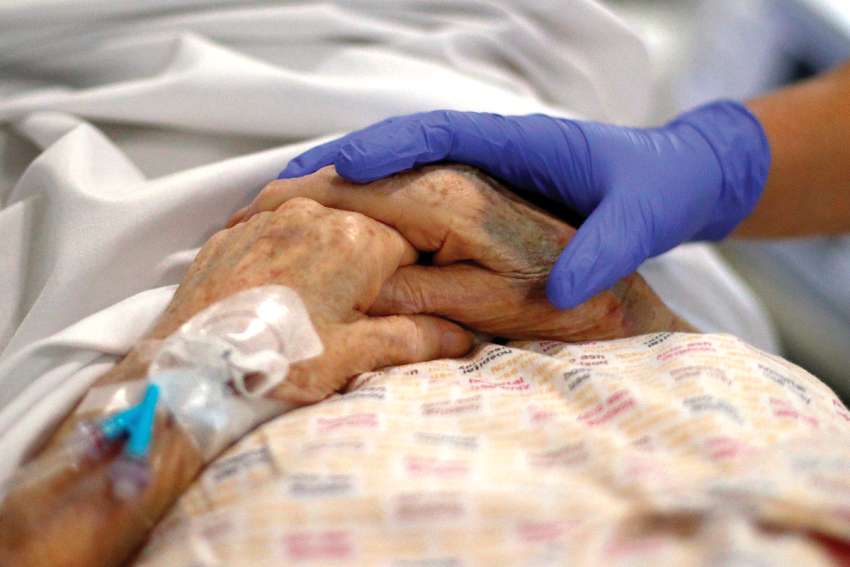At their Feb. 23 meeting, almost all Niagara councilors voted to issue the three declarations in the hope of receiving support from Queen’s Park and Ottawa.
Niagara Region contains one of the 10 fastest growing suburban municipalities in Canada — the City of Thorold — and has seen a population increase of 6.8 per cent since 2016, greater than Ontario’s average population change. More than 484,000 live in the area.
Yet housing and health-care services fall far short, for example:
• Niagara must build about 67,300 single, semi-detached, row and apartment units over the next two decades to keep up with demand;
• Niagara Health lists severe staffing shortages, an increasing demand for hospital services and the ongoing COVID-19 pandemic as factors dramatically increasing wait times in emergency rooms;
• Niagara and communities across Ontario need at least $125 million to meet demand for mental health services, which has increased nearly 50 per cent, and more than 100 per cent for children and youth since the pandemic.
The situation in Niagara is bleak: there was a 59-per-cent rise in suspected opiod overdoses last year; an estimated 12,000 children and youth require mental health services and supports; and at least 665 people were homelessness, 121 of them children aged 0-15 years.
Niagara Region is a microcosm of what’s happening in cities and communities in all corners of the country. Images of downtown Vancouver’s massive tent city, reports of Alberta’s “deadliest year” for drug overdoses and other such accounts point to a serious deterioration of the social safety net we’ve long taken for granted.
The Niagara situation also highlights the web of interconnections within the triple whammy of mental health, homelessness and drug abuse. Mental health issues — more than half of Canadians are grappling with them by the age of 40 — may contribute to conditions and situations that make people unable to pay the rent.
The dearth of affordable housing further limits options, resulting in individuals and even entire families living on the streets, where their mental health will further deteriorate and exposure to illicit drugs increase.
Troubled youth on long waitlists for mental health services are often vulnerable to turning to drugs to deal with their trauma. In the short term this may numb their pain but in the long run will exacerbate their mental illness and increase the chances of them ending up homeless.
These and other cause-and-effect interactions within the triple whammy is important to grasp because it points to the need to come up with holistic solutions.
Too much attention is being focused on isolated, band-aid measures such as setting up safe drug consumption sites, decriminalizing illicit drugs and using church basements as temporary shelters. In a way, such strategies — based on the philosophy that “it’s going to happen anyway, so why not make it safe?” — may even act as “enablers” that encourage drug use and homelessness to continue.
What is needed instead is a clear understanding of the root causes of homelessness, mental health and drug addiction, programs and services that address these root causes, and a deep commitment to funding and implementing these programs and services.
Many factors relate to, and impact, mental health and drug abuse: physical illness; job loss; loneliness; isolation; family breakdown; the lack of a moral compass that comes from connections to God and Church, among many others. Homelessness involves these factors plus lack of affordable housing units.
More provincial and federal government funding is needed for staff and supports in such areas as:
• health care, especially emergency room services;
• Educational Assistants (EAs) in classrooms to help with students facing mental health challenges;
• the supply of affordable housingunits, through new construction, repurposing old buildings and zoning reforms;
• drug addiction/mental health programs and counselling;
• youth employment and training programs.
Climbing out of drug addiction, homelessness and mental illness are Herculean tasks at the best of times but practically impossible without the proper health-care and social-service supports. We need to hold governments accountable to maintain the social safety net.
As Christians, Christ has called us to take responsibility for caring about the weak and vulnerable. We should create our parishes to be welcoming places where we support people facing challenges as we bring them to Christ.
(Majtenyi is a public relations officer specializing in research at an Ontario university.)


